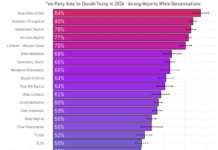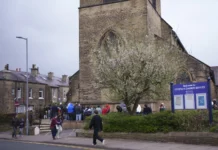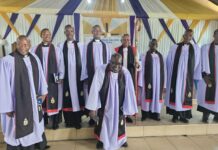At least 25 people have died and an unknown number have been injured and displaced in largescale attacks by armed assailants of Fulani origin on communities in two Local Government Areas (LGAs) in southern Kaduna state, central Nigeria. The attacks have been ongoing since 30 January.
So far 11 people are confirmed to have died in an attack on the Maraban Kagoro area of Kaura LGA that occurred on the evening of 3 February. The victims included Bitrus Sani from Zunuruk, Kwasu Siman Balat from Garaje, Madam Gambo from Maraba, and a man described by local sources as “a security man from Kukum.”
Also on 3 February, gunmen invaded Maigiginya village in Igabi LGA, killing at least one person and kidnapping many others. The victim, named as Mr Sunday Chiroma, was due to get married on 5 February.
Following the attack, a CSW source lamented: “The issues are simply overwhelming. It is one attack too many. The government and all of us seem to have run out of ideas on what to do.” Another source insisted that the Kaduna state authorities should “stop giving us figures and reports and rise up to the occasion… Our villages are being sacked one after the other. There is a mobilisation against us, […] and the nation is at ease. Anytime we raise our voices, we also become targets.”
Days earlier, militia men described by eyewitnesses as numbering “in their hundreds” had attacked Tsonje village, located near Kagoro town in Kaura LGA, from 10am until 12pm on 1 February, killing two people, injuring an unknown number, and burning over 40 homes, grain silos “and anything in (sic) sight.” The assailants returned later that day “with heavy reinforcements” and attacked the village from 4pm until 6pm without being intercepted. Two of the injured were reportedly hospitalised in critical condition, with one undergoing an operation to remove bullets from his body. According to local reports, the attacks were launched as a peace meeting organised by security officers and attended by local leaders and Fulani representatives was underway.
This was the second consecutive assault on Tsonje village. On 31 January, assailants identified as Fulani reportedly “raped, macheted, and maimed several women” who had gone to their farmlands to gather wood, and ambushed students from the College of Education Gidan Waya as they returned from lectures. One of the students is confirmed to have died in hospital.
In an indication of the scale of the attacks on Tsonje, local sources report that “the booming of guns was deafening,” and could be heard from Kafanchan and other nearby towns. While soldiers who had been stationed at the village reportedly “never fired a shot,” other members of the military, who were drawn to the scene by the excessive gunfire, left only to return later in numbers that were described as “insignificant” compared to the numbers of attackers.
Prior to the consecutive assaults on Tsonje village, at least 11 people were killed, an unknown number were wounded, an unknown number displaced, over 30 homes were burnt, and a car, several motorcycles and farm produce destroyed when militia men descended on the Kurmin Masara community in the Zangon Kataf LGA at around 3am on 30 January. One of the victims, an elderly woman, was unable to flee along with others, and was burned to death in her home.
According to a 30 January statement signed by the Kaduna state Commissioner of Internal Security and Home Affairs Samuel Aruwan, members of the Nigerian Air Force Special Forces were ambushed as they responded to distress calls from Kurmin Masara, but had managed to reach the area along with troops from Operation Safe Haven (OPSH). He added that security operatives had commenced search-and-rescue operations in pursuit of the attackers on different fronts.
Adara Communities in the Paikoro LGA of Niger state adjacent to Kaduna state also came under heavy fire by militiamen on 30 January, causing significant displacement and unknown casualties.
Kaduna state has become an epicentre of kidnapping and violence by non-state actors despite being the most garrisoned state in Nigeria. According to government figures, 1,192 people were killed and 3,348 abducted across the state during 2021. The fatalities comprised 1,038 men, 104 women and 50 children. As well as the violence in southern Kaduna, around 11 communities in Birnin Gwari LGA in the north of the state reportedly paid over N30million (approximately GBP £53,000) to secure a peace deal with armed assailants who regularly renege on their commitment.
A government gazette published in January 2022 designated nonstate actors operating in northwest Nigeria who were previously described “armed bandits”, as terrorists, extending this designation to “other similar groups in any part” of the country, and “especially in […] the north-central” region.
CSW’s Founder President Mervyn Thomas said: “We extend our condolences to families that are grieving the loss of loved ones, homes and livelihoods following the attacks in southern Kaduna and Niger states. It is both concerning and unacceptable that these terrorists have amassed significant firepower and are able to launch successive attacks in the same area at any time and in large numbers without being intercepted. Equally unacceptable is the muted response, both locally and internationally, to the remorseless death, destruction and displacement occurring in southern Kaduna and elsewhere in central Nigeria. Given the recent terrorist designation of such groups, and the fact that their operations span several states, the Nigerian authorities must be encouraged and assisted to formulate a comprehensive security strategy encompassing every affected state as a matter of urgency. State and federal authorities must also be urged to resource and mandate the security services, enabling them to ensure immediate and effective protection for communities that have been suffering for far too long.”



